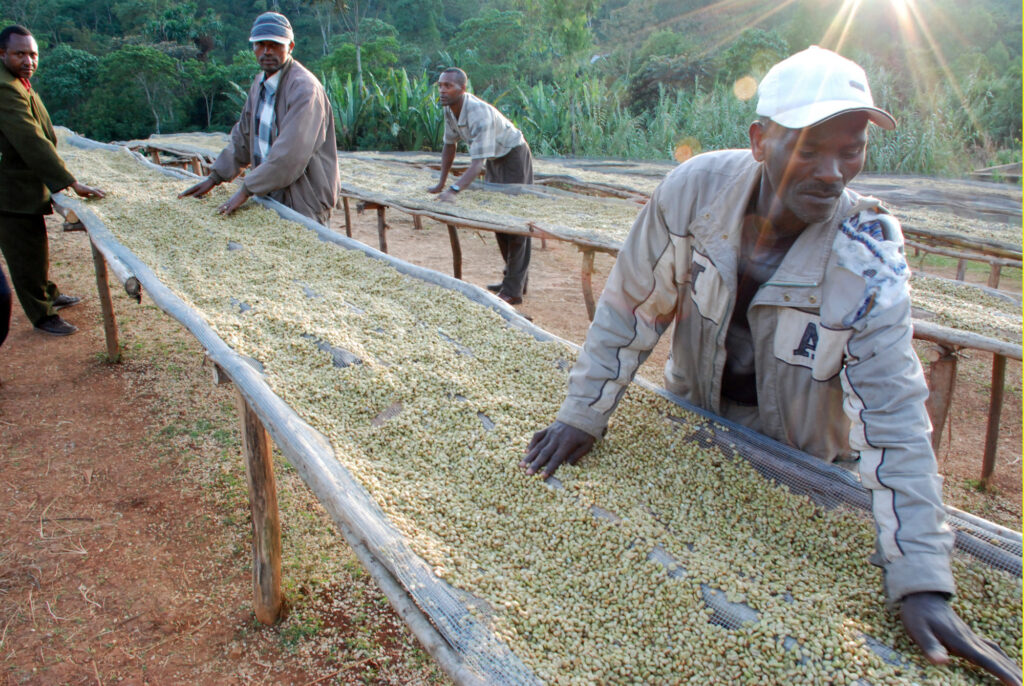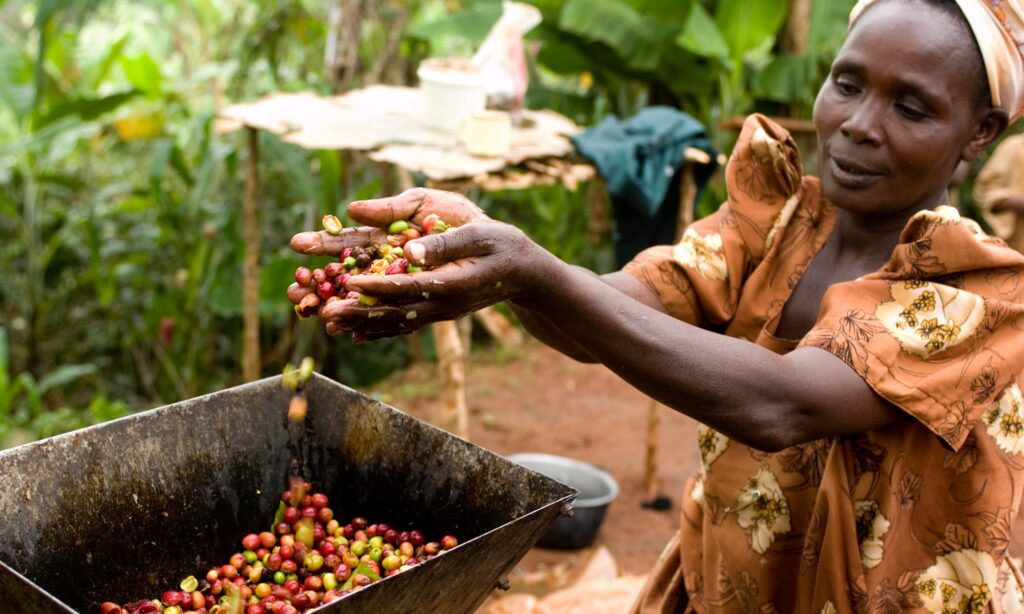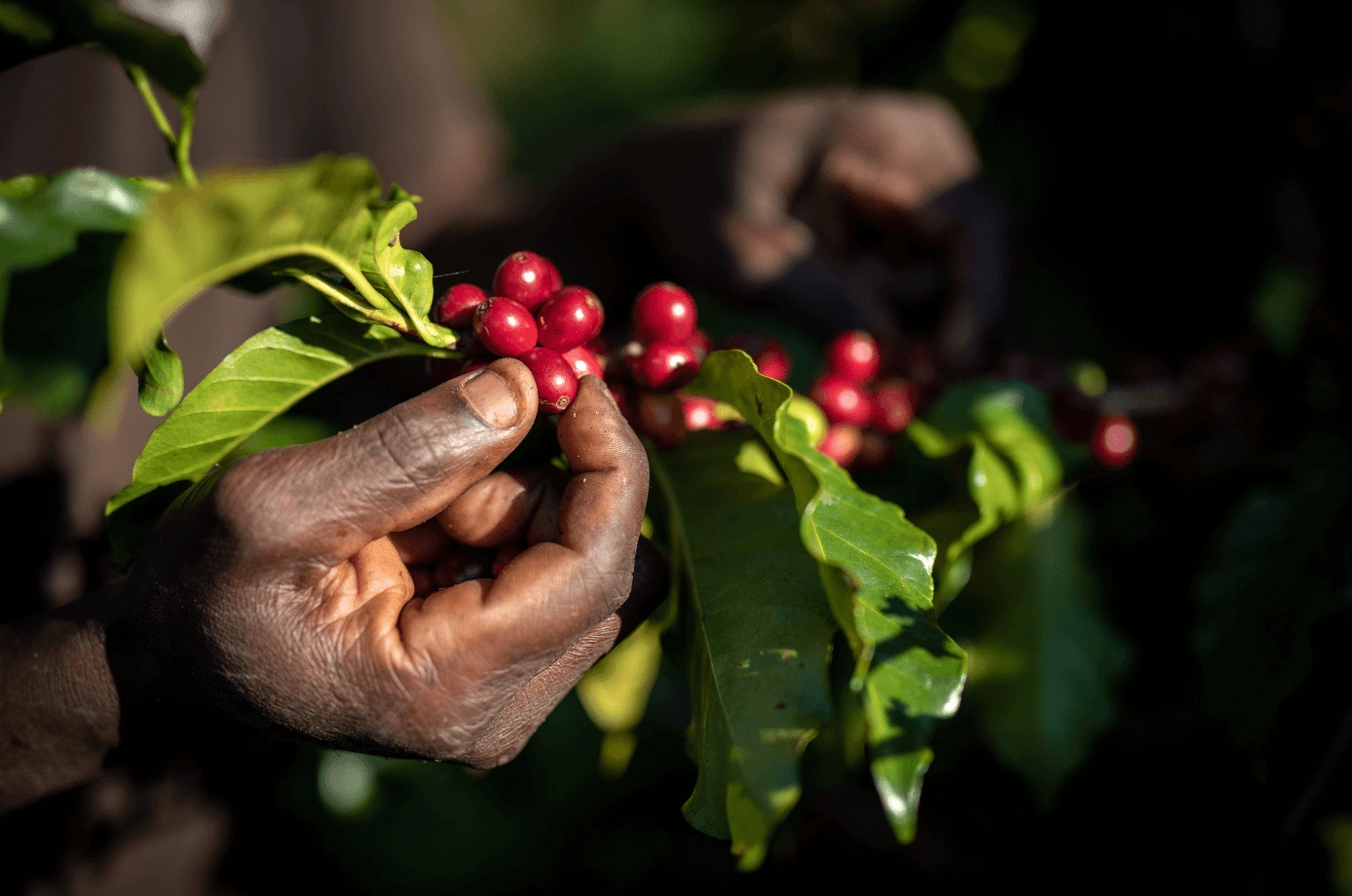Food & Climate
Five leading strategies in place in existing climate change adaptation plans among coffee farmers put them on the top of list of producers in other agricultural sectors in planning for climate change, according to a new study. while the study commissioned by Fairtrade International and co-funded by the European Union, but EU Deforestation-free Regulation (EUDR) will be implemented in 2025.
The five leading strategies planting resistant crop varieties; pruning and shade management; improving soil health; efficient water use and integrated pest management, according to a report seen by “Food & Climate” platform.
The study found generally positive results for coffee producer organizations with climate change adaptation plans — referred to as CCAPs — in place. Benefits included improved soil health and yields with less fertilizer dependance, and better resilience to drought and disease. Additional benefits were better peer-to-peer learning among coffee farmers and producers, and increased farm reinvestments.
“CCAPs are bringing about positive changes,” the report’s authors wrote. “By creating greater awareness and knowledge among farmers of climate change impacts and adaptation options, investment in the implementation of these measures has increased both at [producer organization] and farmer level. Some [producer organizations] report that coffee plants are more resilient and better yielding thanks to these measures. Better data collection and monitoring is required to be able to evaluate these changes as ‘impacts”, according to “Daily Coffee News“.
Climate change is affecting coffee production
Studies have shown that climate change is currently affecting coffee production, while promising to dramatically reshape the global map of where coffee can be grown.
The new Fairtrade report also comes against the backdrop of the European Union deforestation-free supply chains law (EUDR), which is expected to come into force next year after a one-year delay.
EUDR was originally set to take effect in December 2024. However, after compliance concerns were raised by prominent groups, including the European Coffee Federation (ECF) (which represents major brands, such as Lavazza, illy, JDE Peet’s, Nestlé and Starbucks) and the International Coffee Organization (ICO), EUDR will now apply from 30 December 2025 for large and medium companies, and from 30 June 2026 for micro and small enterprises.

A 2024 report published by the French government highlighted that as the world’s largest importer of coffee, the EU is responsible for 44% of coffee-related deforestation.
In response to this profound challenge, in November 2020 the European Union proposed a groundbreaking solution: EU Deforestation-free Regulation (EUDR). The legislation makes it illegal for businesses to import deforestation-linked commodities into the European Union and means coffee traders and roasters will need to prove their products have not contributed to deforestation anywhere in the world after 31 December 2020.
For coffee businesses and farmers that rely on access to the EU market, the ramifications of EUDR are substantial. According to the European Commission, the EU accounts for nearly a third of global coffee consumption, importing 2.7 million tons of coffee in 2023 from non-EU countries with a value of €10.6bn ($2.7bn). Businesses that do not comply with EUDR face fines of up to 4% of their coffee turnover, while some producers could face being cut off from the EU market.
Deforestation
First announced in 2022, EU Deforestation-free Regulation (EUDR) has proved highly controversial in the coffee industry. Advocates say the landmark legislation is vital to protect the world’s forests from commodity-linked deforestation, while critics argue the rules could have unintended negative consequences for some of the world’s poorest farmers.
According to the UN, an estimated 420 million hectares of forests have been lost to deforestation globally since 1990. To put this into perspective, on average of 13 million hectares – an area equivalent to the size of England – is cut down every year.

Most deforestation is driven by rising demand for key commodities, including palm oil, cattle, soy, cocoa, timber, rubber – and coffee. As Europe’s demand for caffeine grows, so does pressure on farmers to clear forests, according “World Coffee Portal”.

